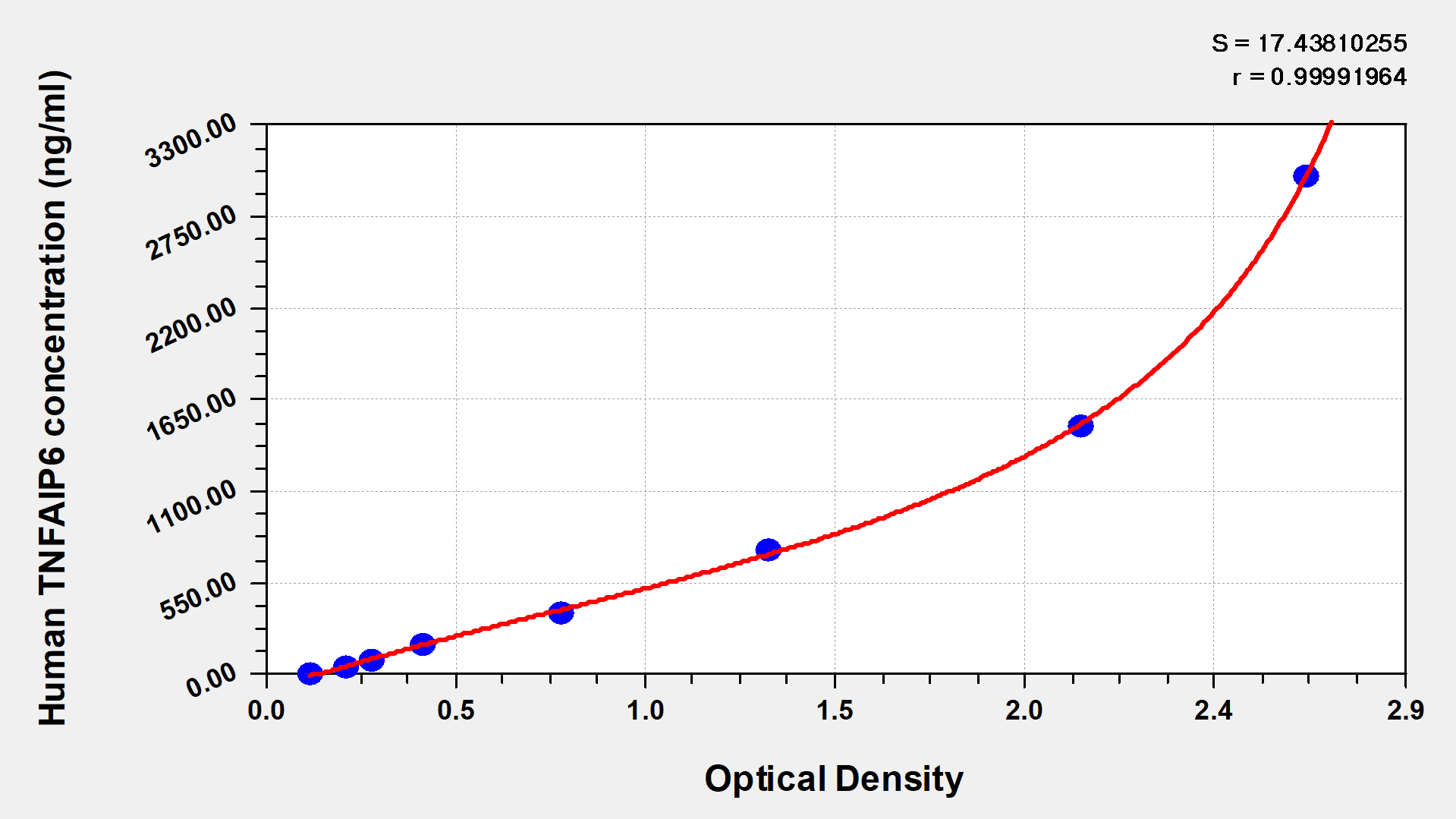The product CSB-EL023959HU is a ready-to-use microwell, strip plate ELISA Kit for quantitative detection of tumor necrosis factor-inducible gene 6 protein (TNFAIP6) levels in human serum, plasma, or tissue homogenates. This kit The kit has undergone multiple validations, including sensitivity, specificity, precision, linearity, recovery, and lot-to-lot consistency. Refer to the product instructions for more details.
The detection mechanism of this assay is based on the sandwich ELISA technique. TNFAIP6 in the samples or standards is sandwiched between pre-coated TNFAIP6 antibody and Biotin-conjugated TNFAIP6 antibody, forming an Ab-Ag-Ab complex. The pre-coated TNFAIP6 antibody/TNFAIP6/Biotin-conjugated TNFAIP6 antibody complex is labeled with HRP and then triggered a chromogenic reaction after the addition of the TMB substrate solution. The color develops in proportion to the amount of TNFAIP6 in the samples. The color development is terminated upon adding the stop solution, and the color immediately turned from blue to yellow. The color intensity can be calculated by a microplate reader at 450 nm.
TNFAIP6, also named TSG-6, is an inflammatory protein belonging to the hyaluronic acid-binding protein family. It is rapidly activated by stimuli, such as TNF-alpha, IL-1, and lipopolysaccharide in several cells, including fibroblasts, peripheral blood mononuclear cells, chondrocytes, and synovial cells. TNFAIP6 is linked to accelerated wound healing and reduced tissue fibrosis. It also modulates chemokines by suppressing the interactions between chemokines and mucopolysaccharides. Studies have shown that TNFAIP6 possesses both pro-inflammatory and anti-inflammatory activity. Moreover, TNFAIP6 can dampen chemokine-stimulated transmigration of neutrophils by directly interacting with the CXCL8 binding site.






